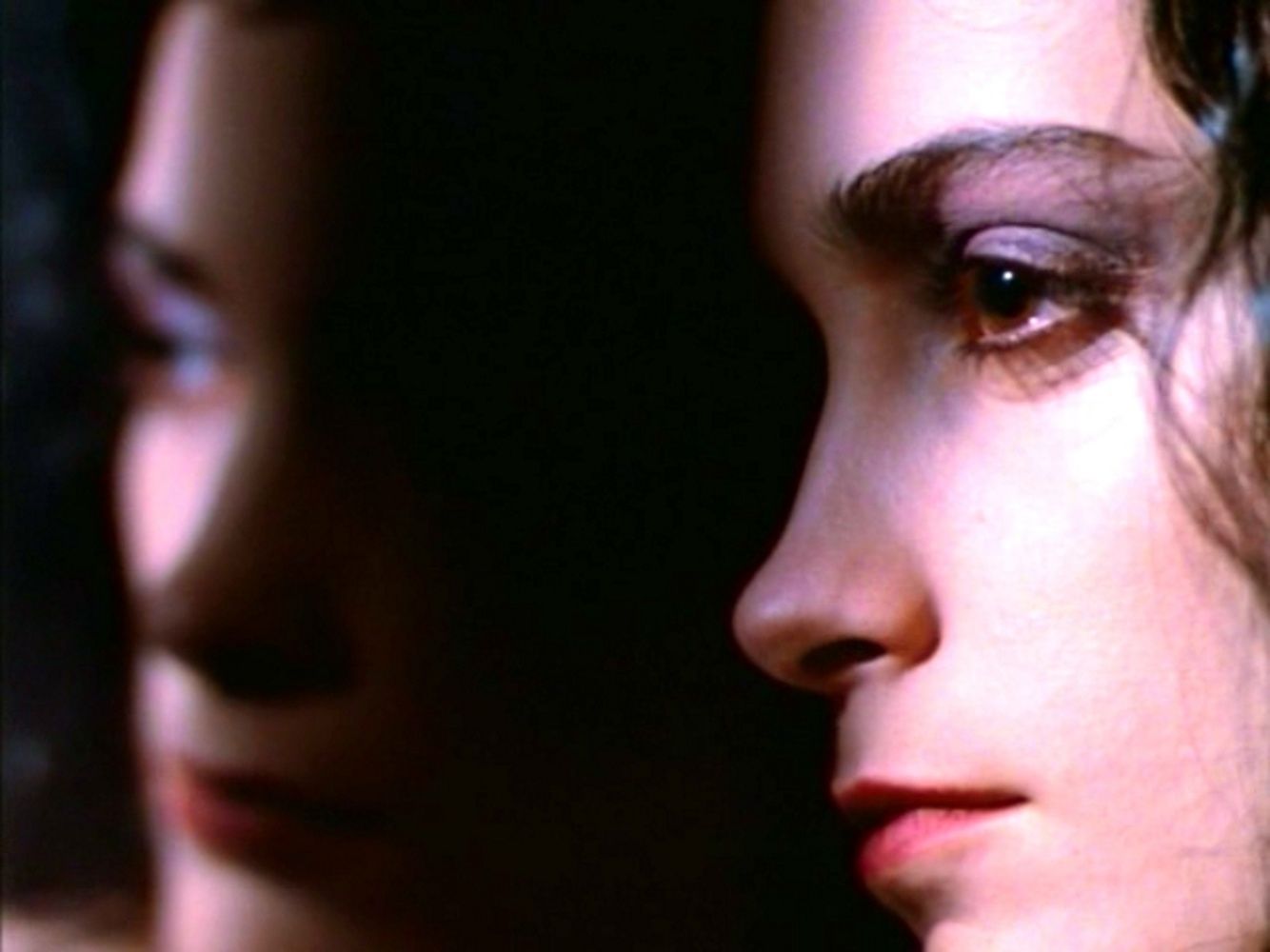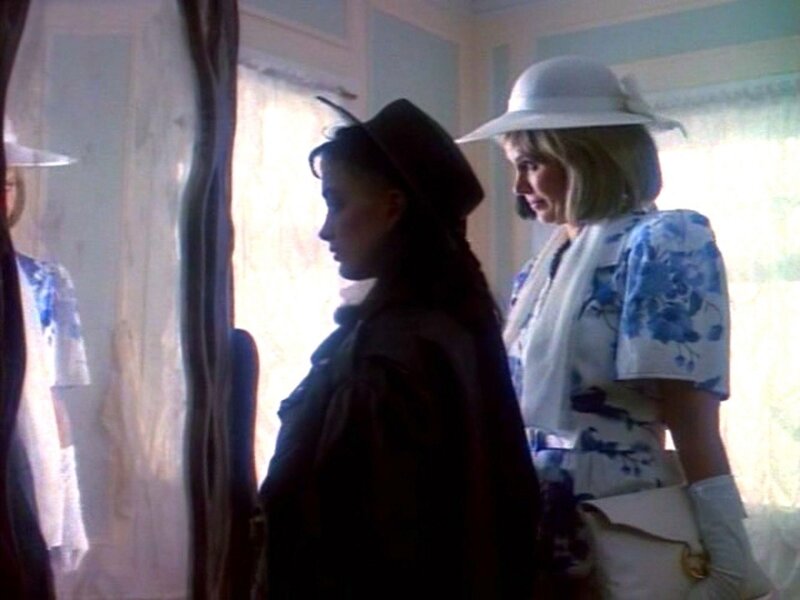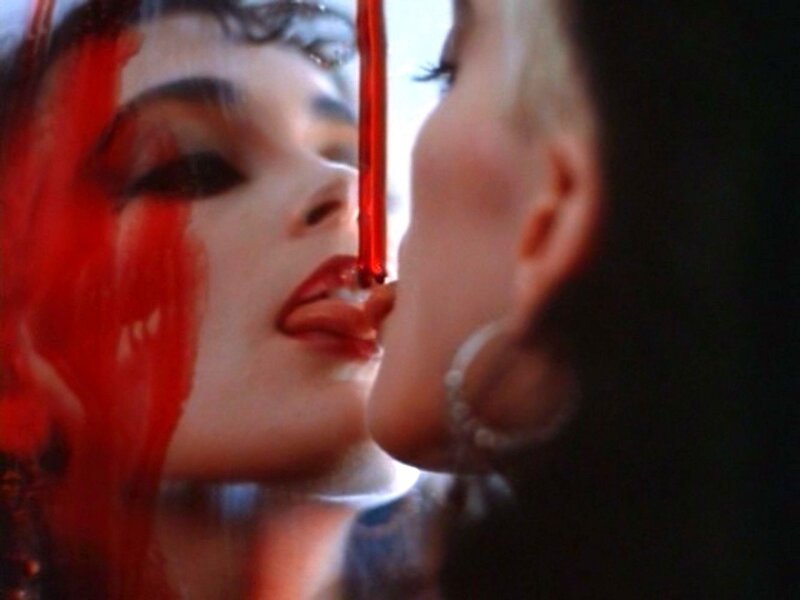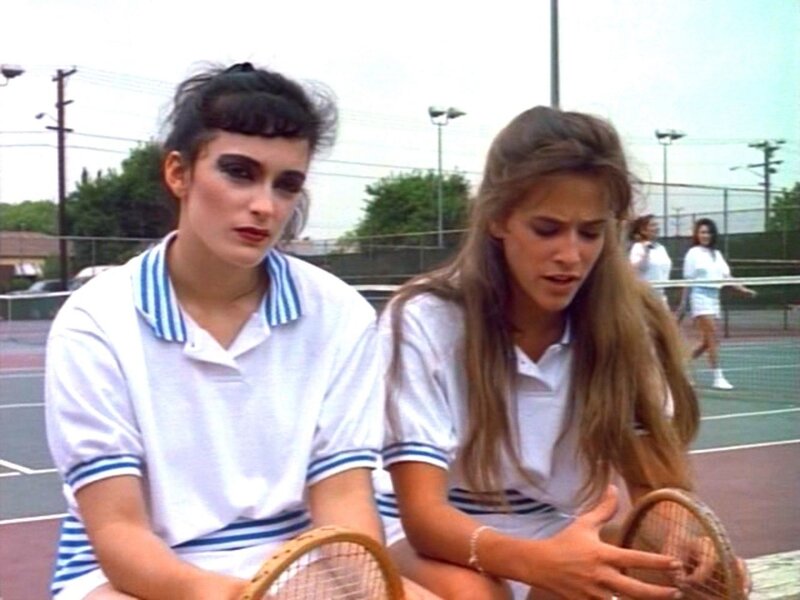Create a free profile to get unlimited access to exclusive videos, sweepstakes, and more!
Cult horror classic Mirror, Mirror turns 30

Marina Sargenti's Mirror, Mirror is turning 30, and with the surge of women directors creating impactful works in horror, it's kind of surprising that there hasn't been a major resurgence for the film. Though it is seldom included in lists of important horror series, the movie spawned three sequels, two of which were also directed by women, making this one of the primary female-led horror franchises of the '90s.
Mirror, Mirror draws from a handful of familiar horror tropes, but it creates something very much its own as it does. Through its witty dialogue and a genuine interest in utilizing its mostly female cast to the fullest, it became easily one of the best-remembered cult horror films of its era.
The movie begins with a flashback to the 1920s, in which a woman murders her twin sister in front of a big spooky mirror. Decades later, in 1990, Susan Gordon (Karen Black) moves into said house with her daughter Megan (Rainbow Harvest) after her husband, Megan's father, passes away. Susan's therapist has apparently advised that they relocate somewhere quieter than Los Angeles in order to heal. Susan takes this to mean that they should move into an enormous haunted house in a small Midwest town without consulting her child about it, and that is exactly what she does. The demonic mirror from the opening scene is left in Megan's bedroom by accident, and Megan, smiling for the first time, insists on keeping it.
Megan adjusts to her new home poorly, and things don't get better when she starts school. Some of her classmates immediately begin teasing her for dressing goth. A girl running for class president named Nikki befriends Megan mostly to make a point about acceptance, which her boyfriend notes could quickly become a lost cause with Megan. Meanwhile, the house auctioneer Emelin (Yvonne De Carlo) begins reading through some journals detailing the prior demonic possession of the twin by the mirror. Emelin tries to get the mirror back from Susan, only to discover that Megan has grown violently attached to it.
Megan quickly discovers that the mirror is granting her the power to enact her will, and she immediately goes over the edge. She starts causing brutal deaths for the people who criticize her or stand in her way. Nikki, at first unable to believe what Megan has done, eventually has to fight her in order to stop her reign of terror.
Mirror, Mirror is nothing if not a bloodbath, and almost every single character dies before the end credits roll. It has been occasionally written about as light teen horror fare, but there is some grisly stuff in here. Gore fans will not be disappointed. The deaths read almost like a checklist through high school horror death tropes, but scenes where characters are gashed to pieces by the mirror are brutal by just about anyone's standards. First and foremost, this is a slasher film in which the slasher just happens to be a possessed mirror.
At least half of the fun comes from the dialogue and the performances. The cast is incredible, featuring many B-movie mainstays. Karen Black is especially delightful in her role as Megan's clueless mom, Susan. The strained relationship between mother and daughter, as well as Susan's awkward but genuine attempts to make amends with Megan, are where most of the emotional weight of the story falls. Black is one of the great character actors of horror, and she infuses this seemingly surface-level role with a surprising amount of emotional resonance. For a character who could have been so easily portrayed as one-dimensional, Black's performance adds a lot of depth to the role, and the movie is better for it. Likewise, the horror trope of the nosy third-party observer might be a lot less entertaining without Yvonne De Carlo's specific presence in the role. This is definitely a film where the actors bring a lot out of the script.
Of course, the friendship between Megan and Nikki is the driving force of the story. Though there isn't much screen time to develop their relationship, it's a believable one. Megan's shyness-turned-possessiveness-turned-cry-for-help isn't something most teenagers would be equipped to deal with well, but Nikki's angst at watching her friend rapidly slide into the deep end and her conviction to help her despite what she's done is compelling.
This was Marina Sargenti's first film, and she followed it up with two made-for-TV movies, two stints on prime-time soap operas, and the beloved Xena: Warrior Princess episode "Here She Comes ... Miss Amphipolis." Rainbow Harvest starred in two made-for-TV movies the following year, then apparently retired. Yvonne De Carlo, who had appeared in many dozens of films, only made five more after this before retiring from the movies in 1993. Kristin Dattilo went on to make appearances in many TV series, including genre fave Dexter. Meanwhile, Karen Black continued turning out fun, interesting performances in independent and horror films for nearly two and a half more decades, including her appearance as Mother Firefly in Rob Zombie's House of a Thousand Corpses.
Though Mirror, Mirror is rife with misunderstandings and outright antagonism between its female characters, the relationships are still interesting and complicated. Seemingly sparse interactions communicate more than meets the eye, and the banter between characters keeps the story weighted where it might otherwise drift off into its own campy excess. The simple choice of actually focusing the trajectory of the female characters around each other creates a unique mood in and of itself for a teen horror film of any era. A strong emphasis on female friendships and how the loss of such is what ultimately causes Megan's escalation is part of why Mirror, Mirror remains so memorable to this day.





























